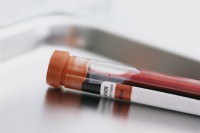Organic products and sustainable living reflect a modern recognition of the value of keeping life close to nature. A century or so ago nearly everyone lived a sustainable lifestyle and ate locally-sourced, home-grown food; there weren’t any other options. But since the Industrial Revolution man has been moving farther and farther away from his natural roots. In the process we have exposed our bodies to some very unnatural things: chemicals, plastics, petroleum distillates, nitrates, heavy metals, etc.

Toxic substances have become part of our everyday lives. They are in the foods we eat, the clothes we wear, the construction materials used to build the homes we live in, the toys our children play with. Few of the items used to live a modern life seem to be completely free of toxicity; and in recent years many have been found to be carcinogenic.
Not so long ago, cadmium was found in children’s jewelry; and lead was discovered in the paint used on children’s toys. These and other high density metals are called “heavy metals.” In order to function properly the human body actually needs small quantities of certain heavy metals; but in excess even useful metals can be damaging. A large number of heavy metals are extremely toxic to the human body and can cause cancer and/or serious physical and mental degeneration.
Chelation therapy for cancer is a treatment that eliminates from the body harmful heavy metals and other undesirable substances that may interfere with cancer treatment and recovery. Find out more about chelation therapy for cancer on our website.


